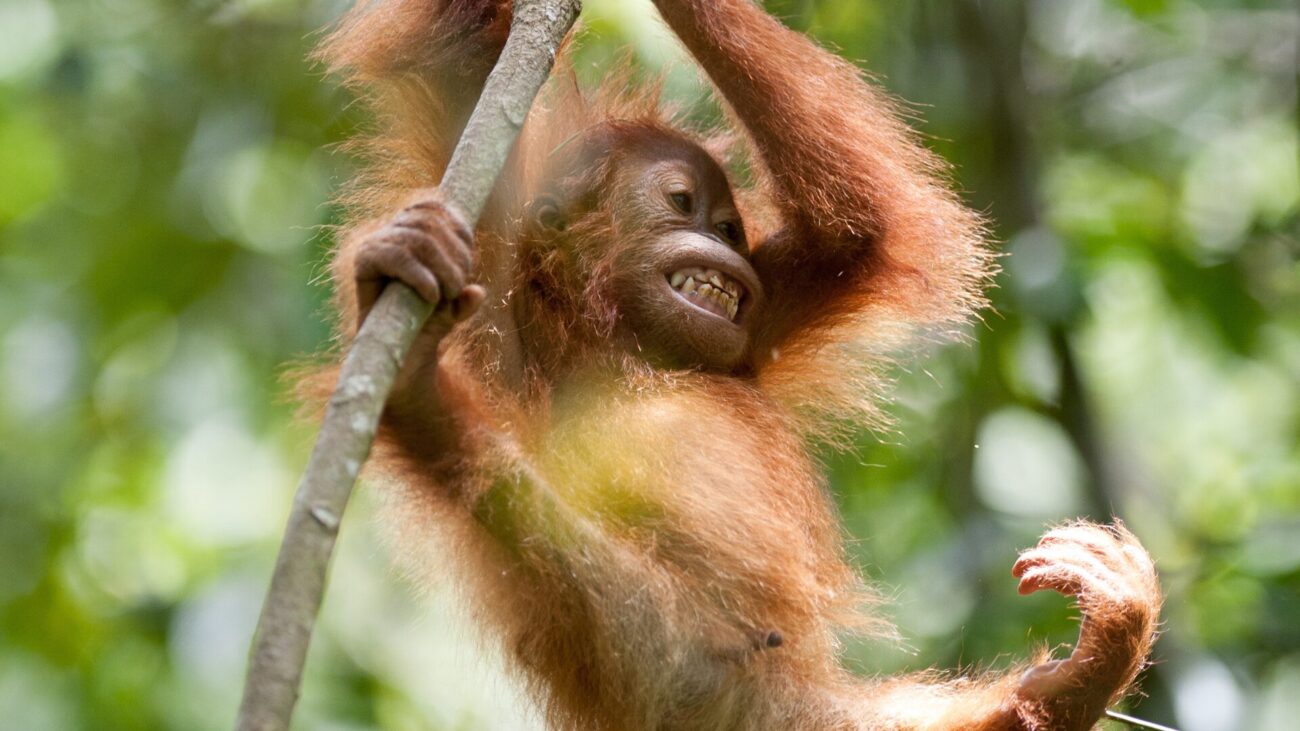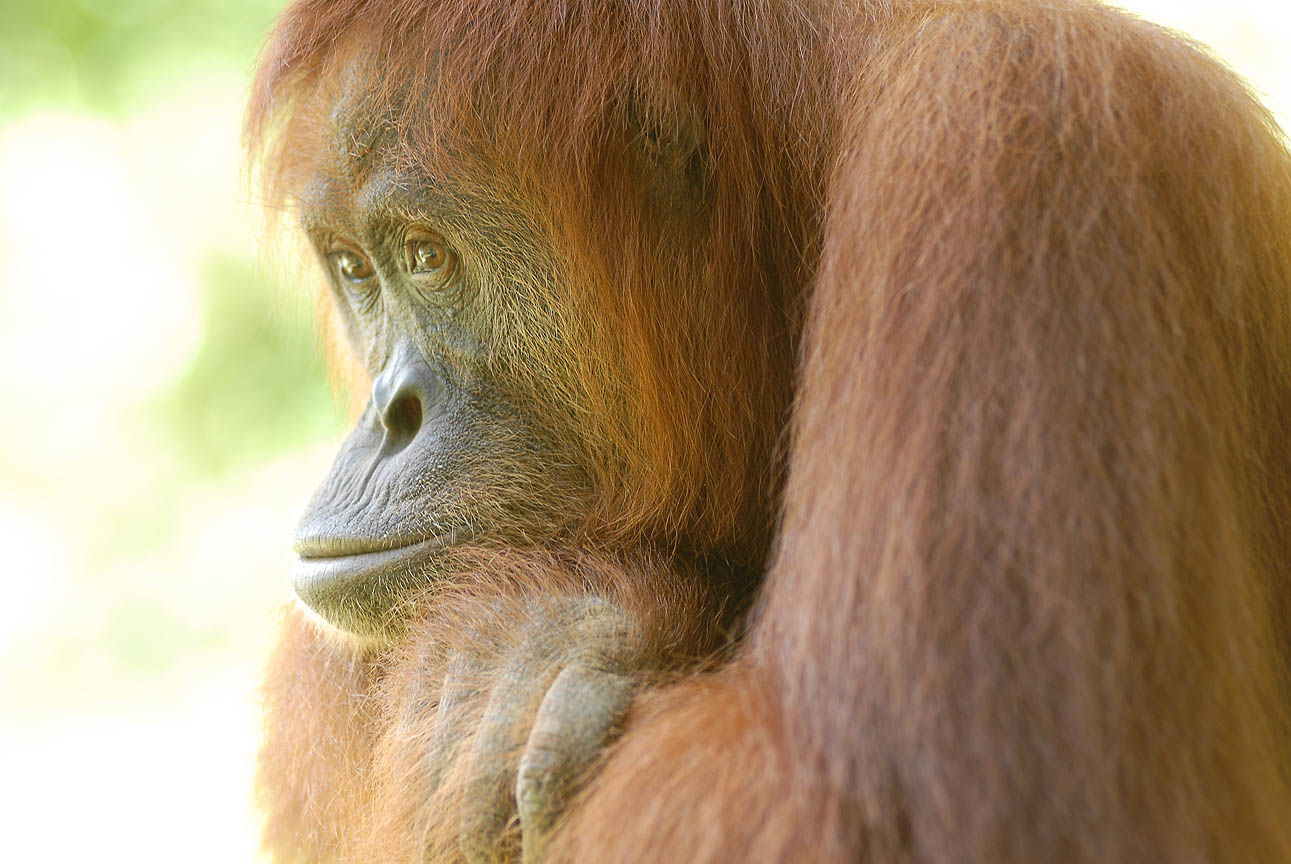
You may remember that dizzying childhood feeling of spinning on a roundabout or rolling down a hill. Perhaps even now, you love twirling on the dancefloor or the thrills of a rollercoaster. But humans may not be the only primate who loves to spin. In 2023, researchers found that apes experience and enjoy the altered perceptions that come with spinning.
The study examined videos of wild and captive apes spinning on ropes and vines, with 2 – 3 rotations per second. This is as fast as ballet dancers and circus performers! The apes would spin multiple times in a row, let go, stumble, fall, and then jump back up and start again. Researchers suggest that spinning is a way to stimulate and shift your senses — to see the world in an altered state.
Although spinning in apes had previously been documented as a communication gesture, this is the first study to suggest it could also be about fun! The findings show that great apes spin at speeds that induce physiological “highs” in humans. However, researchers note the need to explore the differences between ape species.
Studying the spinning patterns between arboreal orangutans and terrestrial gorillas could reveal neurological adaptations against motion sickness or vertigo. Further studies could reveal how self-induced altered mental states in our ancestors may have shaped modern human behaviour, cognition, and mood regulation.
You can help protect Sumatra's Orangutans. Click to get updates
